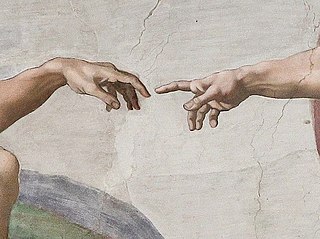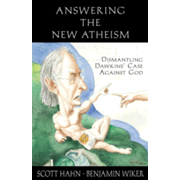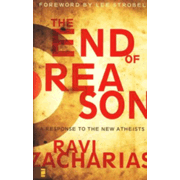Many disbelieve in God for a variety of reasons. The French existentialist Jean-Paul Sarte and Albert Camus were at the forefront of modern atheism and some suggest more atheist than the new atheists. These two, and others, strongly disbelieved and argued against God. They were, some claim, more serious at their craft than the modern new atheism. They were not merely playing with atheism but rather sought to the bottom of it.
They knew that we all have in us a deep desire for fulfillment, for truth, for goodness, for justice, etc. These attributes are reflections that emanate, as those who believe, from God. But, in the viewpoint of these Existentialists and others, since there is no God, then as Sarte said, “Life is absurd. Life is meaningless.” They knew that there is a tension between our desire for God and God’s non-existence. Now the Existential ethic was that in the face of this storm and in the face of this terrible darkness, one asserts his or her own freedom. One asserts his/her own will and says, of sorts, “nevertheless I will go on.” Although I think such thinking is incorrect, these Existentialists were serious about their atheism and saw the implication of it.
There are answers to both these forms of atheism. There are stories in the Bible that are just as dark as those written by Sarte and Camus. If one read many of the Psalms, one can get a very deep sense of how dark and often how meaningless life often seems to be. A really great example is the book of Ecclesiastes. Ecclesiastes is an older man who has done it all, seen it all, experienced it all, and had it all. He is like a modern combination of Bratt Pitt and Barack Obama. He is someone who has had everything: sex, money, power, pleasure. Yet he concludes that all is wind and chase after the wind: “Vanity, vanity, all is vanity,” he says. It is a very perspective book. All things we want in life--pleasure, money, power, honor, and all the other usual things—he has had them. But do such things satisfy him? The answer is a resounding, “No.” Ecclesiastes experimented with all such desires and wants, and he may have even enjoyed them all for a little while. But he realized in his old age that none of them finally and ultimately deeply satisfies him. And this gives, I think, the way past atheism. Ecclesiastes does not follow or agree with Sarte or Camus in saying that therefore, “Life is absurd.” Or, “Life is meaningless.” Or merely to enjoy one’s life, which has been shown as problematic and unfulfilling. What Ecclesiastes says, in the end, is to not put one’s trust finally or ultimately in any of the goods of this world. Rather, he says, trust in the Lord; reorder one’s life to God and then you will find true joy and fulfillment.
Think of a dog who has eaten his fill of food, who is properly sheltered, and who has a nice family around it. Such a dog is utterly content and falls blissfully asleep. Humans are not like this, however. If, as the atheists claim, we are simply clever dogs, or we are simply animals with bigger brains, then we would be satisfied when we had enough of food, drink, pleasure, shelter, etc. and we should simply fall asleep blissfully like the dog that had his fill. But the catch is that we don’t. In fact, precisely when we get all those things that animals want, we are not satisfied. We want something more. That’s because we have deeply ingrained within us a sense of the limitedness of this world; that there is something more. In fact, our very wiring for God proves the existence of God. We desire something that transcends the limitations of this world means that we have within us a sort of participation in the eternal. One’s hunger for food is not merely a sign that food is a projection. But one’s hunger proves the existence of food. One’s hunger proves the reality of food. It doesn’t mean that food is merely a subjective projection or illusion. So our desires are not misleading us. Our desires order us to realities as does our desire for God.
Some have accused religion as being an opium for people. One takes a drug (of religion) that will dull one’s sensitivity to this world so we dream about heaven. But really, atheism is the opium of the masses. Atheism is a drug. What does it mask? It masks the desire of God. Let’s say one does not have any desire for anything beyond this world and can be fully satisfied within this world. But in reality, such a person would have to take a drug to convince him or her self that such is true. One would have to take something that would dull the sensitivity to the deepest longings that persist even when one has all that is supposed to fulfil them. That’s what atheism is. If we want the opium of the masses, then it is precisely trivial atheism that says, “Oh just relax and enjoy your life. Just pretend there’s no God.” Some accuse religious people of dreaming up a fantasy world, but atheism itself is also a fantasy world with phrases such as: “wouldn’t it be nice if there was no God and that I could find my satisfaction in this world; wouldn’t it be nice if there was simply no absolute moral demand; or wouldn’t it be nice if I could just determine my own life.” These phrases and thoughts mean that one is denying one’s longing for God and is denying the existence of God out of his/her deep psychological need of self-interest. Stop taking the drug that dulls one’s sensitivity to the very deepest longing and desire of the heart and soul for God. It’s religion that says, “Stop taking the drug, and wake up.”
Resources for Thoughts on God's Existence:




